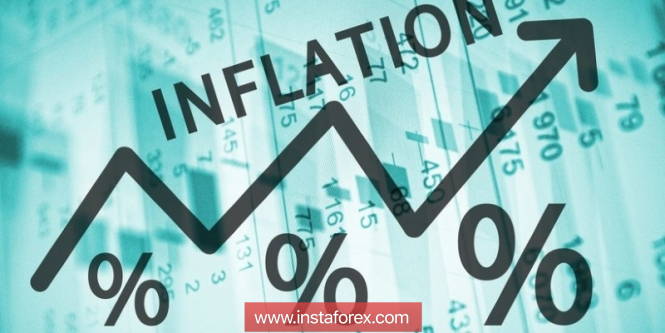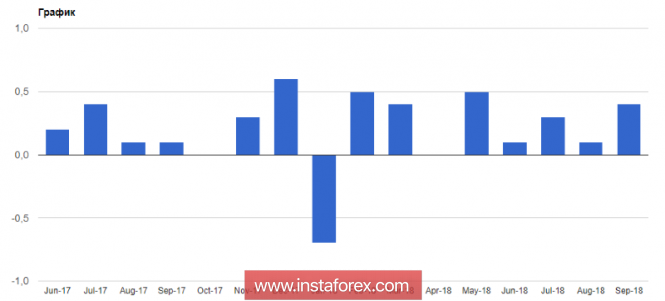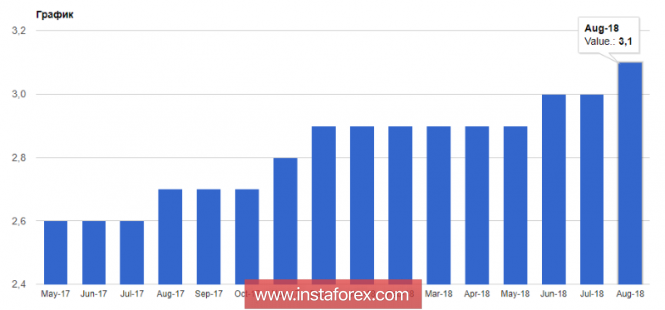The European currency and other risky assets showed an unsuccessful attempt to grow in the first half of the day after a major drop at the beginning of the European session. Support was provided by data on Germany, which showed investors confidence in the future thanks to excellent indicators.
Fundamental data for the eurozone
Consumer confidence in Germany resumed its growth after falling for two months. Confidence is growing in the midst of trade conflicts between the EU and the US, as well as uncertainty over Brexit, which can seriously affect the future prospects of economic growth of the eurozone.

According to the preliminary report of the GfK, the leading consumer confidence index in Germany rose to 10.6 points in October 2018 against 10.5 points in September. Economists had forecast the October index to be 10.5 points.
It is evident that optimism about income is enhanced by good economic performance, which in the future is likely to lead to an increase in consumer spending, which is an important factor in the growth of the economy of any country.
Inflation in Germany continued its growth and even exceeded the target set by the European Central Bank. The increase was due to higher food and energy prices.
According to the Federal Bureau of Statistics, annual inflation in Germany in September this year rose to 2.2% against 1.9% in August. Economists had forecast the figure to be 2.0 percent. The inflation target set by the European Central Bank is slightly below 2%.
Compared to last month, inflation increased by 0.4%.

Judging by the forecasts, inflation in Germany will continue to be at current levels next year.
However, the sentiment index of eurozone producers declined amid trade conflicts, as well as moderate growth prospects of the economies of France and Spain.
According to the European Commission, the sentiment index in the eurozone economy in September this year fell to 110.9 points from 111.6 points in August. Most of all, the decline in sentiment is observed in the manufacturing sector due to the fall in export activity.
It should be noted that the deterioration of sentiment in the future will have a negative impact on the growth rate of the eurozone economy.
Lending in the eurozone in August this year increased, which will support investment. According to the European Central Bank, lending to non-financial institutions in August increased by 4.2% compared to the same period in 2017. As for consumer lending, in August, compared to the same period last year, it increased by 3.1% after an increase of 3.0% in July. The growth of the money aggregate M3 in the eurozone slowed in August to 3.5% from 4% in July, while economists predicted growth of the unit in August of 3.8%.

Canada may be left without a trade agreement
Statements made today by the administration of the US President, led to a decrease in the Canadian dollar against the US.
As it became known, the administration of the US president plans to publish the draft amended NAFTA agreement tomorrow, and the parties to the amended free trade agreement will be the US and Mexico, without the participation of Canada. In turn, if Canada "flies" with the agreement, the US will not have to wait for the introduction of trade duties for a long time, which will seriously affect the economic prospects of the country.
It is important to note the fact that the President of the United States Donald Trump today refused to meet with the Prime Minister of Canada Trudeau, stating that it is already considering the introduction of import duties on Canadian cars and was extremely dissatisfied with the way Canada conducts trade negotiations.
Trump has already shown his unyielding position and put Canada before a choice on which the further trade relations between the two countries will depend. Let's see where this goes.
The material has been provided by InstaForex Company - www.instaforex.com